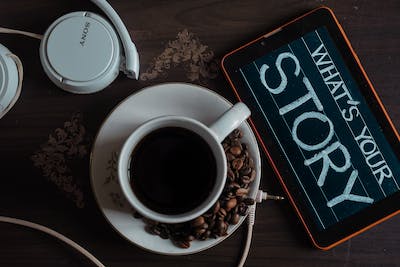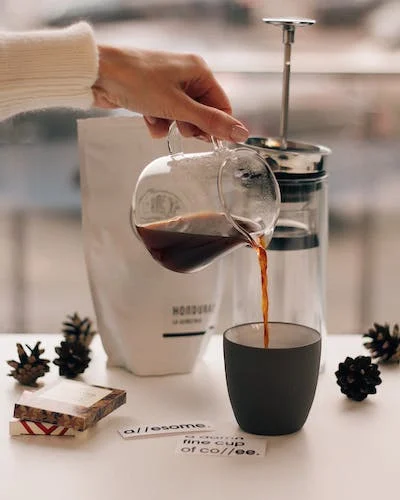Introduction

Exploring Can you Drink Coffee While Fasting
Can You Drink Coffee While Fasting is a practice that has been prevalent in many cultures and religions for centuries. It involves refraining from consuming food and/or drink for a certain period of time. While fasting, it is essential to stay hydrated, and coffee is one of the most popular beverages to consume during this time. However, the question arises, does coffee consumption break a fast? Can it have negative effects on your body during a fast?
In this article, we will explore the relationship between coffee consumption and fasting. We will delve deep into the effects of coffee on the body and help you understand whether or not you can sip your coffee in silence during a fast. From black coffee to bulletproof coffee, we will cover all the bases to help you make an informed decision about your fasting journey.
The practice of fasting and its benefits
Can You Drink Coffee While Fasting is a practice that has been observed by various cultures and religions for centuries. It involves abstaining from food and sometimes even beverages for a specific period of time. While the primary purpose of fasting may vary from person to person, it is often associated with spiritual, health, or cleansing benefits.
In recent years, there has been a growing interest in intermittent fasting, which involves alternating cycles of fasting and eating. This approach has gained popularity due to its potential health benefits, such as weight loss, improved insulin sensitivity, and enhanced cellular repair.
One question that arises when it comes to fasting is whether one can consume coffee during the fasting period. Coffee, with its energizing effects and rich aroma, is a beloved beverage for many. However, its consumption during fasting has sparked debates and discussions among fasting enthusiasts.
In this article, we will delve into the topic of coffee consumption during fasting and explore its potential impact on the fasting experience. We will examine the different perspectives and guidelines provided by experts, as well as the scientific evidence supporting or refuting the notion of sipping coffee while fasting.
Join us on this journey as we navigate through the world of fasting and coffee, uncovering the facts and shedding light on this intriguing topic. Whether you are a coffee lover, a fasting enthusiast, or simply curious about the intersection of these two practices, in this article to provide you with valuable insights and a deeper understanding of the subject. So grab a cup of coffee, or perhaps wait until after your fasting period, and let’s dive in together.
Can You Drink Coffee While Fasting, People Ask the question
Coffee has long been a staple beverage for many individuals, providing a much-needed boost of energy and a comforting ritual to start the day. However, when it comes to fasting, the role of coffee becomes even more intriguing.
During periods of fasting, whether for religious, health, or personal reasons, individuals abstain from consuming food and drink for a specific duration. This abstinence includes coffee, as it contains calories and can potentially break the fast.
Yet, coffee still holds a significant place in the fasting community. Many individuals find solace in sipping on a cup of coffee, even if it means sacrificing the caloric intake. The aroma, warmth, and taste of coffee can provide a sense of comfort and help curb hunger pangs during fasting hours.
Moreover, coffee has been known to have certain health benefits that make it appealing to incorporate into fasting routines. It can increase focus and alertness, boost metabolism, and even suppress appetite, making it an ideal companion during fasting periods.
However, it is important to note that the effects of coffee on fasting can vary from person to person. Some individuals may experience adverse effects such as increased heartburn or disrupted sleep patterns when consuming coffee while fasting. It is crucial to listen to your body and make informed decisions regarding coffee consumption during fasting.
Additionally, it is worth mentioning that the addition of milk, sugar, or other additives to coffee can significantly impact its caloric content and potentially break the fast. Opting for black coffee or exploring alternative options such as herbal teas or water infusions can be a mindful approach to maintaining the integrity of the fasting period.
In conclusion, the role of coffee during fasting is multi-faceted. While it can provide comfort and certain health benefits, it is essential to be mindful of its impact on the fasting process. Understanding your body’s response and making informed choices will ensure that you can enjoy your cup of coffee while respecting the guidelines of your fasting routine.
Understanding the impact of coffee on fasting
When it comes to fasting, coffee can be a topic of debate. Some argue that consuming coffee during fasting can break the fast, while others believe it has little to no impact. To truly understand the impact of coffee on fasting, it’s essential to delve deeper into its composition and effects on the body.
Coffee contains caffeine, a natural stimulant that can increase alertness and boost metabolism. This can be particularly beneficial during fasting periods when energy levels may be lower than usual. Caffeine has also been found to suppress appetite, which can help individuals adhere to their fasting regimen.
However, it’s important to note that coffee can have different effects on individuals. Some people may experience a rise in blood sugar levels after consuming coffee, which could potentially break the fast. Additionally, additives like sugar or cream in coffee can contribute to caloric intake, which may also disrupt fasting.
It’s worth considering the type of fasting being practiced. In intermittent fasting, where individuals fast for a certain number of hours each day, consuming black coffee without any additives is generally considered acceptable and may even enhance the fasting experience. On the other hand, in prolonged fasting or religious fasting that prohibits any consumption, coffee would not be permitted.
Ultimately, understanding the impact of coffee on fasting requires individual experimentation and listening to your body. If coffee disrupts your fasting routine or leads to unwanted side effects, it may be best to avoid it during fasting periods. However, if it helps you stay focused and maintain energy levels, consuming moderate amounts of black coffee could be incorporated into your fasting routine.
Always consult with a healthcare professional or nutritionist before making any significant changes to your fasting or coffee consumption habits, as they can provide personalized guidance based on your specific needs and health conditions.
How does coffee affect the fasting state?
When it comes to fasting, one of the most common questions that arises is how coffee consumption affects the fasting state. Coffee, with its invigorating aroma and stimulating properties, has become an integral part of many people’s morning routines. However, for those observing a fast, whether for religious or health reasons, the impact of coffee on their fasting state is a topic of intrigue.
To delve into this matter, it is important to understand the nature of fasting itself. Fasting involves abstaining from food and, in some cases, beverages for a specified period of time. The aim is to give the body a break from digestion and allow it to enter a state of rest and rejuvenation. During fasting, the body undergoes various metabolic changes, such as utilizing stored energy reserves and promoting detoxification processes.
Now, let’s examine the effects of coffee on this fasting state. Coffee, particularly when consumed without additives such as sugar or milk, is virtually calorie-free. As such, it is often considered permissible during a fast. However, it is worth noting that coffee does have certain physiological effects that may impact the fasting experience.
Coffee contains caffeine, a natural stimulant that can increase alertness and enhance mental focus. When consumed during a fast, caffeine can provide a temporary energy boost and help combat feelings of fatigue or hunger. This can be particularly beneficial for those who find it challenging to sustain their fasts for extended periods.
Furthermore, coffee has been shown to have a thermogenic effect, meaning it can slightly increase metabolism and promote fat burning. This can be advantageous for individuals who are fasting with weight loss goals in mind.
However, it is essential to exercise caution when incorporating coffee into your fasting routine. While black coffee itself may not significantly disrupt the fasting state, adding any form of sugar, milk, or creamer to your coffee can break the fast. These additions introduce calories and can trigger an insulin response, potentially negating some of the benefits of fasting.
In conclusion, coffee, when consumed without additives, can be a permissible and even beneficial accompaniment to a fasting regimen. Its caffeine content can provide temporary energy and mental clarity, while its thermogenic properties may support weight loss efforts. However, it is crucial to be mindful of how you consume your coffee during a fast, ensuring that you steer clear of any calorie-laden additions. As always, it is advisable to consult with a healthcare professional or religious authority regarding your specific fasting guidelines and requirements.
Different types of coffee and their suitability for fasting
Can You Drink Coffee While Fasting; when it comes to fasting, coffee lovers often find themselves questioning whether they can indulge in their favorite beverage without breaking their fast. The good news is that there are various types of coffee that can be enjoyed while fasting, each with its own level of suitability.

Black Coffee
Black Coffee: The simplest and most common type of coffee, black coffee is made by brewing coffee beans in hot water without any additives. It contains virtually no calories or carbohydrates, making it a popular choice for those following strict fasting protocols. Black coffee helps to suppress appetite and can provide a much-needed energy boost during fasting periods.
Espresso
Espresso: A concentrated form of coffee, espresso is made by forcing hot water through finely ground coffee beans. It has a strong, rich flavor and is often consumed in small quantities. Espresso can be consumed during fasting, but it’s important to avoid adding any sweeteners or milk that may break the fast.

Cold Brew
Cold Brew: Cold brew coffee is made by steeping coffee grounds in cold water for an extended period, usually 12 to 24 hours. It has a smoother and less acidic taste compared to regular brewed coffee. Cold brew is generally considered suitable for fasting as long as it is consumed without any added sugars or creams.

Bulletproof Coffee
Bulletproof Coffee: Bulletproof coffee is a popular choice among those following the ketogenic diet. It is made by blending coffee with butter and medium-chain triglyceride (MCT) oil. While bulletproof coffee can provide sustained energy and promote mental clarity, it does contain calories from the added fats. Therefore, it may not be suitable for strict fasting protocols but can be enjoyed during intermittent fasting with caution.
It’s important to note that everyone’s fasting goals and requirements may vary, so it’s best to consult with a healthcare professional or nutritionist to determine the most suitable type of coffee for your specific fasting regimen. Remember, maintaining the integrity of your fast is key, and selecting the right type of coffee can help you navigate your fasting journey while still enjoying the flavors and benefits of this beloved beverage.
Tips for consuming coffee during fasting
Coffee is a beloved beverage for many, providing energy and a sense of comfort throughout the day. But what happens when you’re fasting and wondering if you can still enjoy your morning cup of joe? Fear not, because there are ways to incorporate coffee into your fasting routine without breaking the rules.
Opt for Black Coffee
When fasting, it’s important to avoid any additions that could potentially break your fast. This means skipping the cream, sugar, or any flavored syrups. Instead, embrace the simplicity of black coffee. Not only does it keep you hydrated, but it also provides that much-needed caffeine boost to kickstart your day.
Choose Quality Beans
Since you won’t be masking the flavors with cream or sweeteners, it’s crucial to choose high-quality coffee beans. Look for beans that are freshly roasted and have distinct flavor profiles. Experiment with different origins and roast levels to find the perfect brew that suits your taste buds.
Mindful Consumption
While it may be tempting to gulp down your coffee quickly, take a moment to savor each sip. Pay attention to the aroma, the flavor notes, and the way it feels in your mouth. This mindful approach not only enhances your coffee-drinking experience but also helps you appreciate the small pleasures even during fasting.
Timing is Key
Consider the timing of your coffee consumption during fasting. Some people prefer to have their coffee during the fasting window to prolong the period of no calorie intake. Others choose to have it during the eating window to avoid any potential appetite suppression. Find what works best for you and align it with your fasting goals.
Explore Alternatives
If you find that coffee doesn’t suit your fasting routine or if you’re looking for a change, there are alternatives to consider. Herbal teas, such as chamomile or mint, can provide a soothing and flavorful beverage without any calories. Additionally, you can experiment with decaf coffee or try matcha, known for its calming yet invigorating properties.
Remember, everyone’s fasting journey is unique, and what works for one person may not work for another. It’s essential to listen to your body and find a balance that aligns with your fasting goals, health needs, and personal preferences. With these tips in mind, you can continue to enjoy the ritual of sipping coffee even during fasting, enhancing your overall experience and making your fasting journey more enjoyable.
Alternatives to coffee during fasting
Can You Drink Coffee While Fasting; when observing fasting periods, it’s common for individuals to abstain from consuming coffee due to its stimulating effects and potential interruption of the fasting state. However, if you’re looking for alternative beverages to enjoy during your fasting period, there are several options that can still provide a flavorful and satisfying experience.
Herbal teas are an excellent choice as they are caffeine-free and can offer a range of flavors and health benefits. Peppermint tea, for example, can provide a refreshing and soothing experience, while chamomile tea offers relaxation and aids in digestion. Herbal teas can be a great way to add variety to your fasting routine while keeping you hydrated.
Another alternative to coffee during fasting is green tea. While it does contain a small amount of caffeine, it is significantly lower than that of coffee. Green tea is also known for its antioxidant properties, which can support overall health and well-being. It has a subtle and refreshing taste that can be enjoyed hot or cold.
If you’re looking for a warm and comforting beverage, consider opting for golden milk or turmeric latte. This beverage is made with a combination of turmeric, ginger, black pepper, and a milk of your choice. It provides a creamy and spiced flavor profile while offering anti-inflammatory and immune-boosting properties.
For those who enjoy the ritual of brewing coffee, decaffeinated coffee can be a suitable option during fasting. Decaf coffee still offers the familiar aroma and taste of coffee without the caffeine content. It can be a comforting choice for individuals who want to maintain their coffee routine but without disrupting their fasting goals.
Lastly, don’t forget about the power of hydration. Water should always be a top priority, especially during fasting. Infusing your water with fruits, herbs, or a splash of lemon can add a refreshing twist and make the experience more enjoyable.
Remember, the key during fasting is to choose beverages that align with your fasting goals and restrictions. These alternatives can help you satisfy your cravings and remain hydrated while embracing the essence of sipping in silence during your fasting journey.
Personal experiences and testimonials from coffee drinkers during fasting
Personal experiences and testimonials from coffee drinkers during fasting can provide valuable insights into the effects and benefits of consuming coffee while abstaining from food. Many individuals who practice intermittent fasting or other forms of fasting have found that incorporating coffee into their fasting routine can enhance their experience and help them stay focused and energized throughout the fasting period.
One common testimonial is that coffee can help suppress appetite during fasting, making it easier to adhere to the fasting schedule. The caffeine in coffee acts as a natural appetite suppressant, reducing hunger pangs and cravings, which can be especially helpful during the initial stages of fasting when the body is adjusting to the absence of food.
Additionally, coffee can provide a boost of mental clarity and alertness, which is highly valued during fasting. Many coffee drinkers report feeling more focused, productive, and mentally sharp after consuming coffee while fasting. This can be attributed to the stimulating effects of caffeine on the central nervous system, enhancing cognitive function and increasing alertness.
Furthermore, some individuals have shared their experiences of improved physical performance during exercise while consuming coffee during fasting. The combination of caffeine’s stimulating effects and the potential metabolic benefits of fasting may lead to enhanced endurance and improved athletic performance.
It’s important to note that personal experiences may vary, and it’s always advisable to listen to your body and consult with a healthcare professional before making any changes to your fasting routine. Factors such as individual tolerance to caffeine, overall health, and specific fasting goals should be taken into consideration.
In conclusion, personal experiences and testimonials from coffee drinkers during fasting highlight the potential benefits of incorporating coffee into fasting routines. From appetite suppression and increased mental clarity to improved physical performance, coffee can be a valuable tool for individuals seeking to optimize their fasting experience. However, it’s crucial to approach coffee consumption during fasting with mindfulness and moderation, ensuring it aligns with individual health goals and preferences.
The science behind the benefits and drawbacks of coffee while fasting
There has been a long-standing debate about whether or not consuming coffee while fasting is beneficial or detrimental to the fasting process. To truly understand the impact of coffee on fasting, it’s important to delve into the science behind it.
One of the key components of coffee is caffeine, which is known to stimulate the central nervous system and increase alertness. When consumed during fasting, caffeine can provide an energy boost and help individuals stay focused and alert throughout the day. This can be particularly beneficial for those who are practicing intermittent fasting and need to maintain productivity during fasting hours.
Additionally, studies have shown that caffeine can increase the metabolism and enhance fat burning. This suggests that drinking coffee while fasting may potentially aid in weight loss efforts. Moreover, coffee has been found to suppress appetite, which could help individuals adhere to their fasting regimen by reducing hunger pangs.
However, it’s important to note that coffee on an empty stomach can have some drawbacks as well. Caffeine can increase the production of stomach acid, which may lead to digestive discomfort or heartburn for some individuals. It can also have a diuretic effect, potentially causing dehydration if not accompanied by adequate water intake.
Furthermore, coffee has been found to impact insulin sensitivity, which plays a crucial role in maintaining blood sugar levels. While some studies suggest that coffee can improve insulin sensitivity and lower the risk of developing type 2 diabetes, others indicate that it may have a negative impact on blood sugar control. Therefore, individuals with diabetes or insulin resistance should exercise caution when consuming coffee while fasting.
Ultimately, the effects of coffee during fasting can vary from person to person. It’s important to listen to your body and assess how it responds to coffee consumption during fasting. If you experience any negative side effects or if it hinders your fasting goals, it may be best to abstain from coffee or opt for decaffeinated alternatives.
Always consult with a healthcare professional or registered dietitian before making any significant changes to your fasting routine or coffee consumption habits, especially if you have any underlying medical conditions. They can provide personalized advice and guidance based on your individual needs and goals.

Finding the right balance for coffee consumption during fasting
In conclusion, finding the right balance for coffee consumption during fasting is crucial for maintaining a successful fasting routine. While coffee can provide numerous benefits, such as increased energy and focus, it is important to be mindful of its potential effects on your fasting goals.
For those following strict fasting protocols, such as water fasting or intermittent fasting for weight loss, it is generally recommended to abstain from consuming coffee during the fasting window. This ensures that you are truly giving your body a break from caloric intake and allowing it to fully reap the benefits of fasting.
However, if you are practicing a more flexible form of fasting, such as time-restricted eating or modified fasting, incorporating moderate amounts of coffee may be acceptable. It is essential to listen to your body and observe how coffee affects your fasting experience. Pay attention to any signs of increased hunger, disrupted sleep patterns, or negative effects on your overall well-being.
Additionally, it is important to choose your coffee additives wisely. Opting for black coffee or adding a splash of unsweetened almond milk or coconut oil can help minimize the impact on your fasting goals. Avoid adding sugar, creamers, or any other high-calorie ingredients that could potentially break your fast.
Ultimately, finding the right balance for coffee consumption during fasting is a personal journey. It may require some experimentation and self-reflection to determine what works best for your body and fasting goals. Remember to consult with a healthcare professional or nutritionist if you have any specific concerns or medical conditions that may be impacted by coffee consumption during fasting.
By being mindful of Can You Drink Coffee While Fasting, you can navigate the world of fasting while still enjoying your favorite cup of joe. Embrace the silence, savor the aroma, and find the perfect harmony between your fasting routine and coffee consumption. Cheers to a balanced and fulfilling fasting journey!
We hope you found our exploration of whether Can You Drink Coffee While Fasting insightful. It’s fascinating how something as simple as a cup of coffee can raise questions and considerations when it comes to fasting. Whether you’re a coffee lover or someone who practices fasting, we hope this article provided you with a deeper understanding of the topic. Remember to listen to your body and consult with a healthcare professional before making any changes to your fasting routine. So grab your favorite mug, savor your next cup of coffee, and embrace the silence as you sip during your fasting journey. Cheers to health and mindful consumption!
